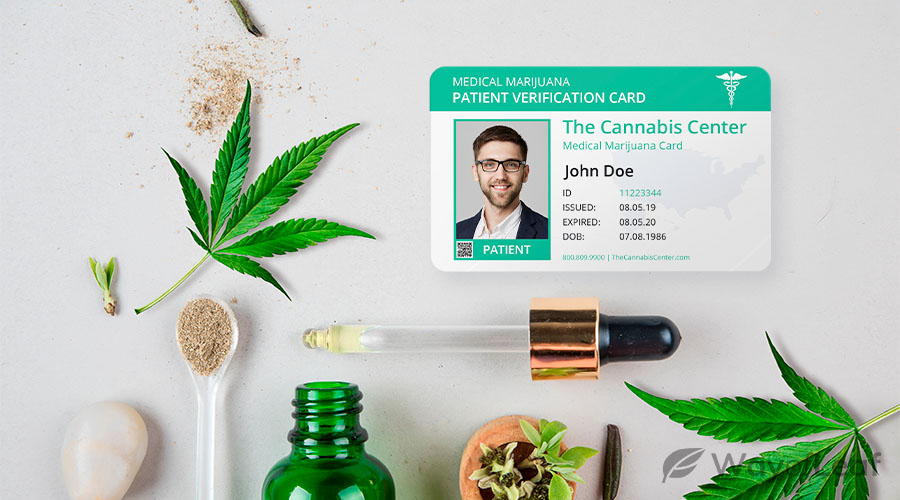South Carolina remains one of the strictest anti-marijuana states in the nation. Currently, the substance is illegal for medical and recreational use, and the state has yet to decriminalize it.
Indeed, the only piece of legislation relating to the Cannabis sativa L. plant that made it into law was Senate Bill 1035, also known as “Julian’s Law,” in 2014 SB 1035 allows patients with severe epilepsy to possess and use CBD products with a maximum of 0.9% THC and a minimum of 15% CBD.
The South Carolina Compassionate Care Act was introduced into the SC House in January 2017. Updated versions of this act, House Bill 3660 and Senate Bill 366 were introduced in January 2019.
The Compassionate Care Act and another MMJ bill, the Patriots First Act, initially stalled, but there has been some recent legislative movement. It’s worth noting that over 70% of SC residents favor MMJ legalization. This guide investigates the rules of SB 366, outlining what you can expect if it becomes possible to get an SC medical card. It also walks you through the likely certification process.
South Carolina Medical Marijuana Laws
Not only is marijuana illegal in SC, but law enforcement in the state is quick to catch offenders. South Carolina has among the highest number of marijuana-related arrests in the country.

Weed is not decriminalized in the state, so possessing any amount is a misdemeanor with a potential prison term of 30 days. A second offense could result in you spending a year behind bars. The sale or cultivation of any amount are felonies and carries possible jail terms of five years.
Therefore, individuals looking to use marijuana for medical reasons must wait for an official SC MMJ program.
How to Get a Medical Marijuana Card in South Carolina
The current version of the Compassionate Care Act is unlikely to pass into law. However, if SC ever has a medical marijuana program, the application process will probably look similar to other MMJ programs. It seems as if the South Carolina Department of Health and Environmental Control would oversee the program. The bill would also lead to the creation of a Medical Cannabis Advisory Board.
In any case, here is how applicants would likely get an MMJ card if weed is ever legalized in South Carolina.
Step 1 – Get in Touch with an SC Healthcare Provider
According to SB 366, prospective MMJ patients could only use a doctor with whom they have a bonafide physician-patient relationship. Furthermore, physicians must complete a three-hour continuing medical education course on medical cannabis approved by the department. Doctors must complete this course within a year of writing their first certification or before issuing 16 certifications.
Step 2 – Schedule a Consultation
After finding a qualified SC doctor, patients must schedule an appointment. During this consultation, the physician will ask patients about their medical condition. Then, the doctor performs an examination and only provides a written certification if they find that the patient has a qualifying medical condition and is eligible for MMJ.
The doctor must create a treatment plan, and patients must attend a follow-up appointment no later than six months from the date of the written certification.
Step 3 – Sign up for a South Carolina State Government Account
Prospective MMJ patients would likely be able to apply online after receiving a doctor’s written certification. After completing the form, applicants would need to wait for the department to decide if they are eligible.
Step 4 – Visit a Dispensary
After being approved, MMJ patients would receive their cards in the mail. At this point, patients would be free to buy medical marijuana from a licensed dispensary within the state.
Who Can Apply for a Medical Marijuana Card in SC?
To apply for a medical marijuana card in SC, as per the Compassionate Care Act, you would need to be a state resident aged 18+ with a qualifying medical condition. However, the bill makes provisions for minors and out-of-state MMJ patients.
Cost of MMJ Card in SC
There is no definitive information on medical marijuana card costs in SC or the price of a doctor’s consultation. However, few MMJ programs in other states have an application fee of over $100, with most charging $50 or less. The bill does mention that the department will provide discounts for application and renewal fees based on the applicant’s household income.
SC MMJ Card Qualifying Conditions
As per the Compassionate Care Act, the SC medical marijuana card qualifying conditions would include:
- Glaucoma
- Epilepsy
- PTSD
- Sickle cell anemia
- Crohn’s disease
- Ulcerative colitis
- Severe or persistent nausea related to end-of-life hospice care or if the person is bedridden due to the condition (and the nausea is unrelated to pregnancy)
- Cachexia or wasting syndrome
- A chronic medical condition causing severe and persistent muscle spasms, including MS
- A terminal illness
SB 366 also states that a person is eligible if they have any debilitating or chronic disease or medical condition where they are using an opioid or an opioid could be prescribed by a doctor “based on generally accepted standards of care.”

The Medical Cannabis Advisory Board would have the power to add other serious medical conditions.
How Long Does It Take to Get a Medical Marijuana Card in SC
SB 366 states that the department will issue registry ID cards within 25 days of receiving a valid application from a designated caregiver or qualifying patient.
How to Renew My South Carolina Medical Card?
The renewal process would likely resemble the initial application. This means patients would need to book another doctor’s appointment to receive a written certification. Then, they would have to complete a renewal application form. An MMJ card in South Carolina would be valid for a year.
Other Information on the SC Medical Marijuana License Process
The following is other information gleaned from SB 366. Remember, the bill has not been made into law, and if South Carolina ever legalizes MMJ, the rules may differ from the current version of the Compassionate Care Act.
What Types of Cannabis Can I Purchase in SC?
The bill isn’t clear regarding the options available to MMJ patients, although it appears that marijuana flower would be permitted. SB 366 also mentions a maximum of 10mg of THC in edibles. Yet, even though the act may allow flower, it also states that smoking marijuana is illegal, with a fine of $150 for anyone caught breaking this law.
How to Get a Medical Marijuana Card in SC Online
While it may be possible to complete your application online, all doctor’s appointments would have to be conducted in person.
Can I Register My Child for Medical Marijuana in SC?
The Compassionate Care Act makes provisions for applications from minors. However, when a minor (someone aged 17 or less) applies, a doctor must provide written certification to a designated parent or legal guardian with the legal authority to make healthcare decisions on the minor’s behalf.
Interestingly, applicants aged 18 to 23 must submit written certifications from two doctors.
Where Can I Purchase MMJ in South Carolina?
The Compassionate Care Act states that the department would issue one MMJ dispensary license for every twenty pharmacies with a state-issued permit in South Carolina.
How Much Cannabis Can I Buy & Possess?
According to SB 366, MMJ patients in South Carolina would be permitted up to two ounces of cannabis in a 14-day period.
Can You Grow Marijuana in South Carolina with a Medical Marijuana Card?
It is unlikely that any MMJ bill that passes into law will contain a provision for growing marijuana.
Where Can I Use My MMJ?
MMJ cardholders in South Carolina would only be able to use the substance in a private residence.
Does the Bill Include Reciprocity?
It is unclear, although SB 366 does mention nonresident cardholders diagnosed with a debilitating medical condition.
What Are the Caregiver Rules?
The bill states that MMJ patients would be allowed to use a designated caregiver. A caregiver must be 21+ unless they are the parent/guardian of each qualifying patient they assist. Although there are exceptions, caregivers in South Carolina could only serve one patient as per SB 366.
What If I Lose My Medical Card in South Carolina?
There is no clearly outlined process for patients who lose their MMJ card. They would probably need to contact the department for assistance.
When Did Medical Marijuana in South Carolina Become Legal?
MMJ is not legal in South Carolina, and this situation is unlikely to change as long as Henry McMaster remains the state’s governor. He has stated his intent to veto the legislation, which means the Compassionate Care Act would need two-thirds support in both chambers.
Bad news for MMJ supporters came when McMaster easily defeated Joe Cunningham in the state’s gubernatorial election in November 2022. Cunningham had stated his intention to legalize medical and recreational weed. McMaster will retain his position until 2026.
In April 2023, the Patriots First Act and Compassionate Care Act both stalled in the South Carolina Senate subcommittee. There was good news in February 2024, however, when the SC Senate passed a medical marijuana legalization bill. It has been passed to the House for consideration. Getting the bill through the House is a different matter entirely, but there is at least an outside chance of MMJ coming to South Carolina.
How to Get a Medical Marijuana Card in Charleston
At present, it is impossible to get a medical marijuana card in Charleston. However, if an MMJ program is approved, residents of South Carolina’s most populous city would likely find it easier to find an approved physician than most.
MMJ Card for Veterans in SC
The Compassionate Care Act states that the department “shall waive all applicable fees for veterans.” Therefore, military veterans in South Carolina could apply for free, although they would still need to pay a physician consultation fee.
Final Thoughts on Getting a South Carolina Medical Marijuana Card
The Compassionate Care Act is one of the few pieces of medical marijuana legislation that has even made it to the House or Senate in South Carolina. Now that an MMJ legalization bill has made it through the Senate, hope springs eternal for marijuana advocates in the state. However, the House remains a formidable obstacle, and one that the MMJ bill is unlikely to overcome this time around.





![How to Get a New Hampshire Medical Marijuana Card [Guide]](https://wayofleaf.com/wp-content/uploads/2019/03/new-hampshire-640x225.jpg)
![How to Get a Louisiana Medical Marijuana Card [Full Guide]](https://wayofleaf.com/wp-content/uploads/2019/02/wol_louisiana_1920x450-640x225.jpg)
![How to Get an Oklahoma Medical Marijuana Card [Easy Process]](https://wayofleaf.com/wp-content/uploads/2019/03/wol-banner-how-to-get-an-oklahoma-medical-marijuana-card-640x225.jpg)




